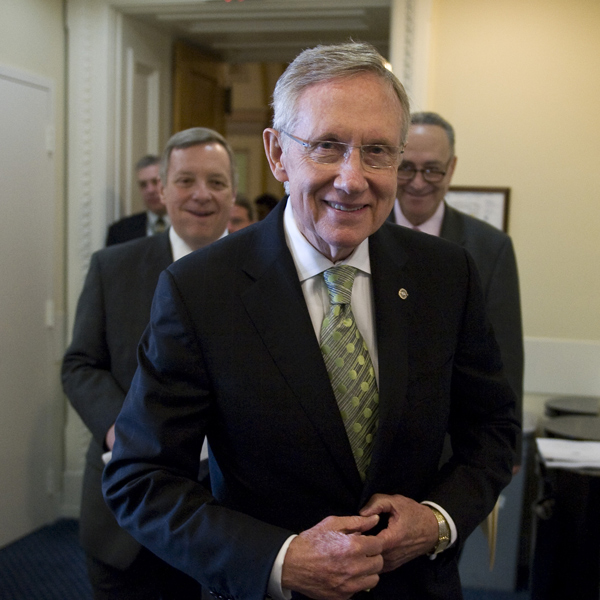Without a single objection, Republicans tonight dropped their three day filibuster of financial reform legislation, agreeing unanimously to debate the Democrats’ bill on the Senate floor.
Though clearly a big defeat for the Republicans, their line tonight is that they endured this week’s political maelstrom for a substantive reason: to allow Sen. Richard Shelby (R-AL) to extract as many concessions out of Banking Committee Chairman Chris Dodd as he could. When Dodd said no more, they relented. Of course, bipartisan talks have broken down several times before, without Republicans relenting, and if you scratch below the surface, you find that the GOP’s calculation was rooted more in an understanding that the caucus didn’t have an appetite for endless obstruction this time around.
On her way out of an evening meeting with the Republican caucus, I asked Sen. Olympia Snowe (R-ME) whether, in the final analysis, pressure from within the party to ultimately allow debate on a bill forced this decision. “I think people recognized that. As I said yesterday, that [if] they could not make any progress on the talks–that they reached an impasse–then it was important then to rethink,” Snowe said.
Sen. Bob Corker (R-TN) felt similarly: “I think everybody–I was not communicating any outlier feeling,” he said. “I think everybody knew that at some point we needed to take up financial regulation. And again, we’ve had a three day pause where we’ve had the ability to make some gains. Obviously we would have liked to have made a whole lot more.”
So what now? By unanimous consent, the Senate will debate the Dodd bill. There will be an open amendment process–both Republicans and Democrats will get to take a crack at changing the bill. Unless an agreement is worked out between the parties, though, those amendments will be subject to filibusters. That means many of them will be held at a 60-vote threshold. Once they’re all cleared, the final bill itself will likewise be subject to filibuster. And that means, among other things, we could see a replay of this week’s food fight all over again a week or two from now.










